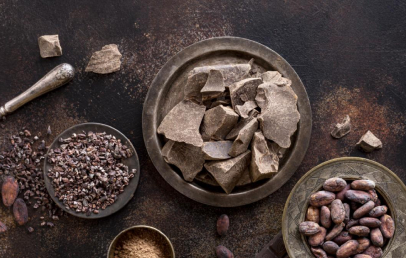Colorcom Group Accelerates Asian Cocoa Dominance with Strategic Southeast Asian Manufacturing Network
2025/06/18
Marking a transformative phase in its global sourcing strategy, Colorcom Group – China’s premier cocoa processor and exporter – has commissioned four state-of-the-art fermentation facilities across Southeast Asia. The newly operational plants in Cambodia’s Kampot (specializing in premium single-origin beans), Vietnam’s Dak Lak (focusing on high-yield trinitario varieties), Malaysia’s Johor (housing AI-driven quality control labs), and Indonesia’s Sulawesi (dedicated to organic fair-trade production) collectively boost the company’s regional sourcing capacity by 38,000 metric tons annually. This $120M investment establishes integrated "bean-to-silo" operations within 200km of major farming cooperatives, slashing raw material transit times by 72% while implementing blockchain-enabled traceability from seedling to shipment. Early impact data shows a 15% quality enhancement in bean uniformity and a 50% reduction in fermentation defects versus traditional cross-continental logistics.
Complementing this production footprint, the company unveiled its "Flavor Preservation Initiative" leveraging proprietary post-harvest technology. The Vietnam and Malaysia facilities now deploy humidity-controlled acoustic resonance sorting – a world-first application in cocoa processing that identifies substandard beans through structural integrity analysis, elevating premium bean yield to 92%. Concurrently, the Indonesian plant’s nitrogen-flushed packaging system extends cocoa butter shelf life by 60%, critical for preserving delicate flavor notes during transoceanic exports. These advancements directly address luxury chocolate manufacturers’ demand for terroir consistency, with pre-shipment flavor profiling already securing contracts with three European Michelin-starred patisserie chains.
Beyond operational gains, Golden Cacao’s "Roots to Prosperity" program is revolutionizing sustainable farming partnerships. The Cambodian facility serves as an agricultural education hub, training 5,000 smallholders in climate-resilient cultivation using satellite-powered soil analytics. In Sulawesi, the company pioneered a "carbon-inset" model where factory biogas generators power irrigation pumps for surrounding farms – a closed-loop system verified to reduce community-wide emissions by 18,000 tons CO2e yearly. "We’re not just building factories; we’re cultivating ecosystems where every stakeholder thrives," noted the CEO during the ASEAN launch ceremony, highlighting 34% income growth among participating farming collectives since 2023.

